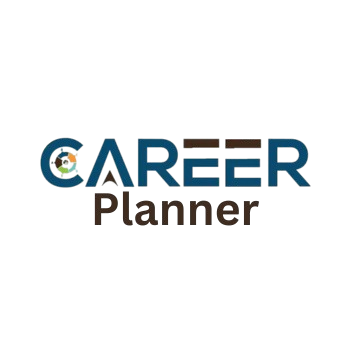Lately, have you found yourself scrolling through your phone, questioning whether your current career path is really the right one for you? Maybe you’re stuck in a job that doesn’t feel meaningful, or you’ve realized the dreams you had in your 20s don’t match who you are today. Whatever the case, if you’re asking, “Is 33 too old to start a career?”—the short answer is no, it’s definitely not too late.
Starting a new career in your 30s can actually be a fantastic move. By now, you probably have a better grasp of your strengths and values, and you’re still early enough in your professional life to explore new directions.
In this article, we’ll tackle the common worries people have when thinking about a career change at 30. We’ll go over the pros and cons, look at high-paying careers you can start at 30—even with no experience or degree—and share practical advice on making a smooth transition.
Is 30 too late for a career change?
For a lot of people, the idea of switching careers at 30 feels overwhelming, but a lot of that hesitation comes from societal pressure and stubborn myths. There’s this unspoken expectation that by your 30s, you should have your career “figured out” and be climbing the corporate ladder. But in reality, life is way more flexible—and changing careers in your 30s isn’t just common, it’s often life-changing.
According to 2023 data from the Bureau of Labor Statistics (BLS), Americans aged 25 to 34 change jobs an average of 2.4 times. That number jumps to 2.9 for those between 35 and 44—proving that career shifts aren’t just normal, they’re frequent at this stage of life. Whether it’s for better opportunities, shifting priorities, or new passions, many people see their 30s as the perfect time to realign their careers.
Time is on your side
Think about it—at 30, you likely have another 30 to 40 years of working ahead of you. That’s plenty of time to build a rewarding new career. With longer life expectancies and more opportunities for personal growth, your 30s are still prime time for exploration. Plus, by now, you’ve gained valuable life experience and soft skills that make you more adaptable in a new role.
Signs it’s time for a career change
If you’re still on the fence, here are some clear signals that it might be time for a change. We talked to career coach Jenn Smith, who’s helped countless professionals through career transitions. She suggests reflecting on these 10 signs:
- You’re bored at work.
- You’re not learning anything new.
- You don’t like your coworkers, colleagues, or clients.
- You’ve noticed your mental or physical health is suffering.
- You’ve stopped caring about your work.
- You can’t picture your next best role at your current company.
- You get the Sunday Scaries every week.
- You feel stuck in your career growth.
- You feel empty and unfulfilled—like you have more to give, but your job doesn’t let you.
- You’re exhausted or drained by the end of each day.
Pros and cons of changing careers at 30
Starting fresh can feel intimidating, especially if you’re jumping into a completely new industry. Like any big decision, changing careers at 30 has its upsides and challenges. Weighing them can help you decide if the long-term rewards outweigh the short-term sacrifices.
Pros:
- Renewed enthusiasm: A fresh start in a field you love can reignite your passion, making work feel more purposeful.
- Long-term satisfaction: A career that aligns with your interests and values leads to greater fulfillment.
- Financial growth potential: Switching to a high-demand field (like tech, healthcare, or finance) can boost your earning power.
Cons:
- Financial impact: You might face a temporary pay cut, education costs, or even a gap in employment.
- Time commitment: Building expertise takes effort—reskilling, networking, or starting at entry-level.
- New industry challenges: The learning curve can be steep if you’re entering unfamiliar territory.
How to change careers in your 30s
Surprisingly, external factors aren’t the biggest hurdle. “Massive change is massive change, no matter where you start or where you’re headed,” Smith says. If you’re considering a switch, she recommends starting with small, intentional steps—because every action builds momentum.
Change your mindset
“The real difference starts in the mind,” Smith explains. Limiting beliefs like “I waited too long,” “I’m stuck here until retirement,” or “It’s too competitive to land my dream job” can hold you back.
But those who succeed in career changes act with courage, not confidence. “We think we need confidence to take action, but here’s the truth: career change doesn’t require confidence—it requires courage,” she says. “Confidence isn’t the starting point; it’s the result of action.”
Conduct a self-assessment
Look at your interests, transferable skills, and values. “Transferable skills are abilities that apply across roles and industries—things you’re naturally good at,” Smith says.
Think about what comes easily to you. For example, strong communication from a customer service role could help you transition into UX design or another client-focused field.
Set realistic goals
Break your transition into achievable steps—whether it’s earning a certification, gaining experience, or setting up informational interviews. Progress builds momentum.
Research industries
Look into high-paying or growing fields open to career changers. Use job boards, online platforms, or informational interviews to explore options.
Smith suggests: “Consider an internal transfer within your current company to gain relevant experience.”
Pursue upskilling
Sometimes, new qualifications are necessary—but they don’t have to be expensive. Check out affordable (or free) certifications on Coursera, LinkedIn Learning, or community colleges.
Engage in networking
Connections matter when entering a new field. LinkedIn is great for meeting professionals, joining groups, and attending virtual events.
“Show excitement for the new role—your enthusiasm will be contagious!” Smith says.
Manage finances during the transition
Plan carefully—save 3-6 months of expenses to cover living costs, education, and networking.
If that sounds daunting, Smith suggests: “Keep your current job while planning your exit, or take on side gigs in your target field until you’re financially ready.”
“When I started career coaching, I kept my HR job and coached on the side until I could transition full-time,” she shares.
Frame your change for employers
In interviews, present your career shift as a thoughtful decision. Highlight transferable skills and the steps you’ve taken (certifications, networking, projects) to prepare.
Which career is best after 30? 11 paths worth exploring
Whether you want high pay, no-experience roles, or fields that don’t require a degree, Smith says: “The best industry for you depends on how well your skills match what hiring managers value.”
Here are some of the best careers to start at 30. (Many of these jobs are on The Muse—click on one to find your next role!)
High-paying careers to start at 30
These roles value transferable skills and offer growth potential.
- Software developer: Builds and maintains software systems. Great for problem-solvers. Coding boot camps and online courses make it accessible.
- UX designer: Creates user-friendly digital interfaces. Ideal for creative communicators. Many enter through certifications and portfolio-building.
- Data analyst: Interprets data for business decisions. Perfect for analytical thinkers. Learn tools like Excel, SQL, or Tableau.
- Project manager: Leadership and organization matter. Certifications like PMP help.
- Sales/business developer: Rewards interpersonal skills. Tech and healthcare sales offer high earning potential.
Career change at 30 with no experience
Some fields prioritize potential over experience.
- Customer service/support: Great for communicators, with room to grow into leadership.
- Freelance/gig work: Writing, virtual assistance, or graphic design let you build a portfolio.
- Administrative roles: Organizational skills can land you jobs like executive assistant.
Career change at 30 without a degree
These roles value skills over formal education.
- Real estate: Requires minimal education; rewards self-motivation.
- Digital marketing/social media management: Certifications in Google Analytics or social media can open doors.
- Entrepreneurship: Start a business or freelance in a field you love.
“Focus less on which industries seem welcoming and more on where your skills meet what employers need,” Smith advises.
Take the leap
Changing careers at 30 is about aligning your work with your passions and goals. It can lead to greater satisfaction, growth, and even better well-being.
Yes, it’s scary—but the first step is always the hardest. Choose courage over perfection, take small steps, and trust that each move builds confidence. Your dream career is possible—it starts with believing in yourself and making that first move.

